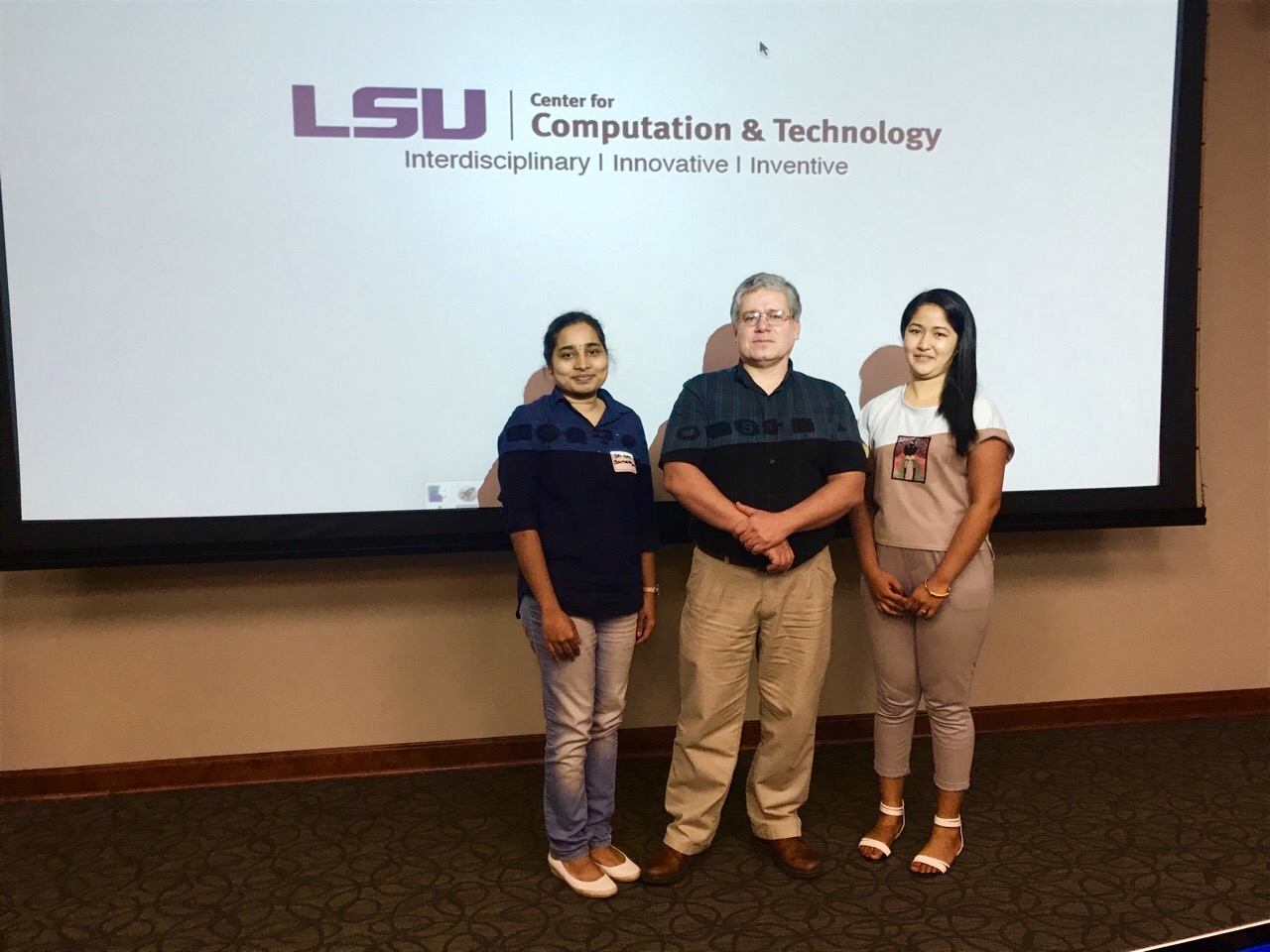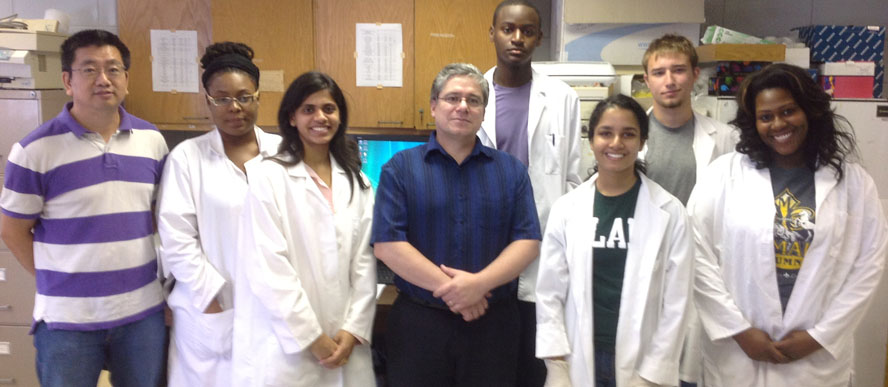Martinez-Ceballos Lab
Martinez-Ceballos Lab Follow us on Twitter ![]()
The main project in Dr. Martinez-Ceballos laboratory focuses on the role of the Hoxa1 transcription factor on the differentiation of mouse embryonic stem cells (ESCs) along a neuroectodermal pathway. Hoxa1 is an important regulator of embryonic development in vertebrates. Studies have indicated that the lack of Hoxa1 in mouse embryos results in developmental defects, including hindbrain deficiencies, abnormal skull ossification, and ultimately, in death. In humans, mutations in this gene result in neurological disorders and autism susceptibility. Conversely, elevated levels of Hoxa1 promote cell proliferation and cancer. These observations highlight the importance of Hoxa1 but little is known about the mechanism by which a precise control of Hoxa1 gene expression is achieved in cells. The long-term goal of this project is to elucidate and characterize the mechanism of Hoxa1 action and understand how the levels of Hoxa1 are controlled in cells. This project is currently funded by NSF Award Number:1901346 with title “Excellence in Research: Upstream and Downstream Analysis of Hoxa1 Gene Expression”. The project is an extension of preliminary findings in the PI’s laboratory which indicate that the Hoxa1 protein plays a role in controlling its own gene expression. Thus, the results from this project will lead to the elucidation of the specific roles played by Hoxa1 on the differentiation of ES cells, which will represent a significant contribution to the area of stem cell biology. In addition, a number of different sectors (research, industry, and education) will benefit from this study as the results obtained will provide a leading edge to research groups within the United States in their pursuit of novel stem cell applications. As the proposed work includes a mentoring program for undergraduate students, it will also have broader impacts on the preparation of traditionally underrepresented students who wish to follow a scientific career in Biological Sciences.Find more about this project Here
A second project in Dr. Martinez-Ceballos laboratory seeks to identify and characterize the drug-resistant cell populations, presumably cancer stem cells, which arise after treatment of human prostate cancer cells lines with combinations of a number of environmental pollutants and anticancer drugs. The activation of various cell survival pathways is currently been examined in treated versus untreated cancer cell lines. This project forms part of the dissertation research of two Ph.D. students.
 Sri L.D. Kona, Dr. Martinez-Ceballos, and Amita Shresta at the LSU's "Computational Biology 2017" Workshop
Sri L.D. Kona, Dr. Martinez-Ceballos, and Amita Shresta at the LSU's "Computational Biology 2017" Workshop
Amita Shresta and Sri L. Kona are former Biology Master's students whose thesis work was part of a project funded by an AREA grant (R15) from the National Institute of Health (1R15NS091949-01, 2015-2019). Read about findings from this project Here
- About Dr. Eduardo Martinez-Ceballos
- Lab Members and Projects
- TRIO Upward Bound Students
- Biology Program Website

Dr. Xiaoping Yi, Danielle Refuge (former Ph.D. student), Niharika Mente (former Biology Master's student), Dr. Eduardo Martinez-Ceballos, highschool summer interns from the Louisiana School for Math, Science, and the Arts, LSMSA (Alex Robertson, Kripa Upadhyay, Ty Doiron), Dominique Townsend (Ph.D. student).

